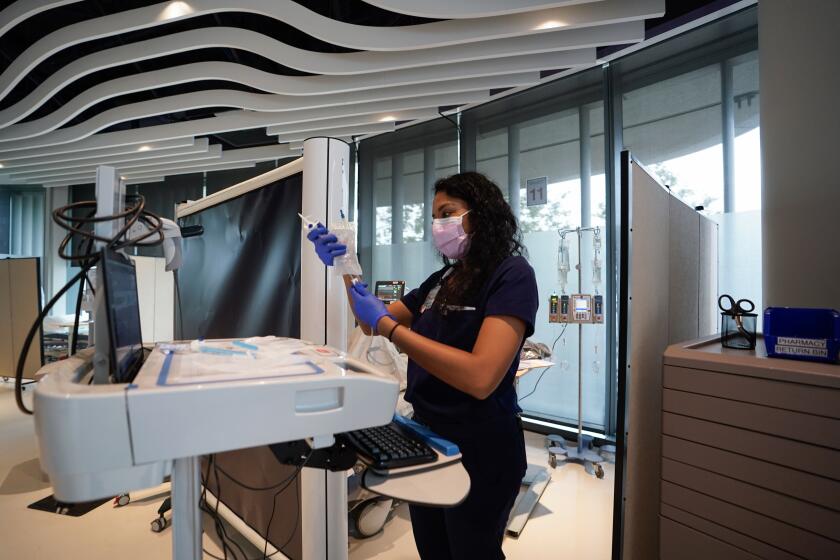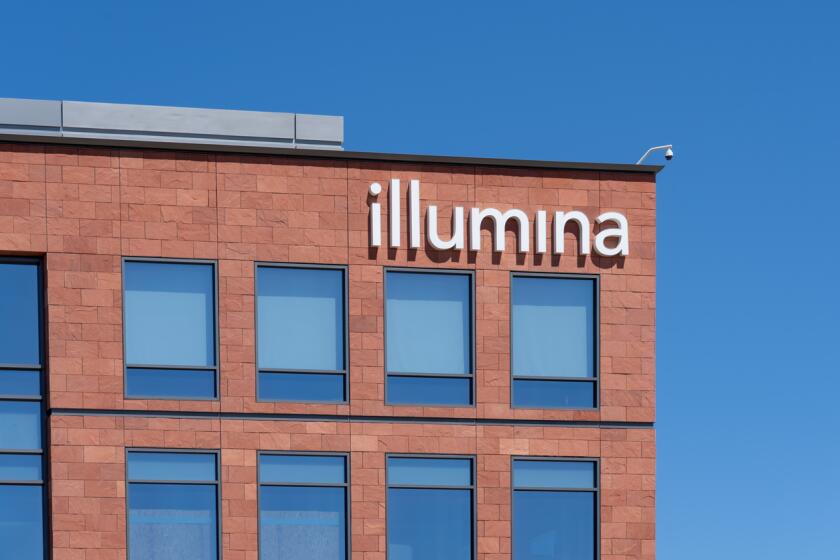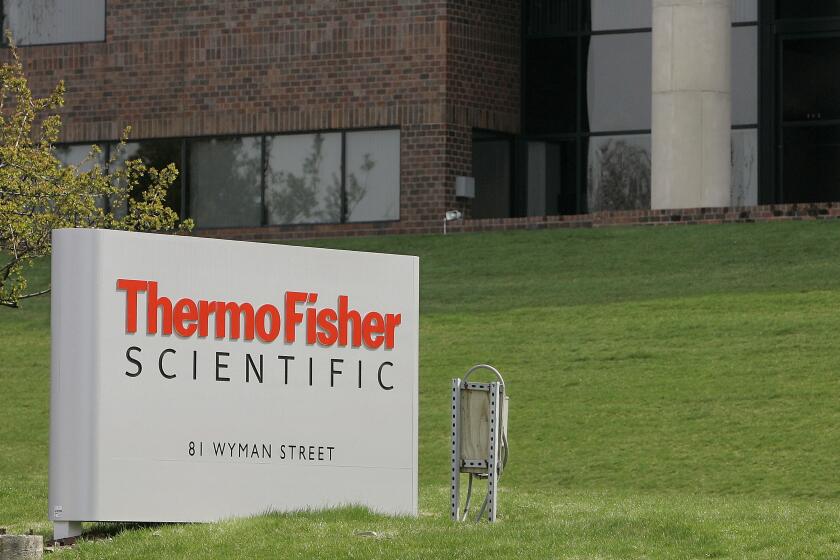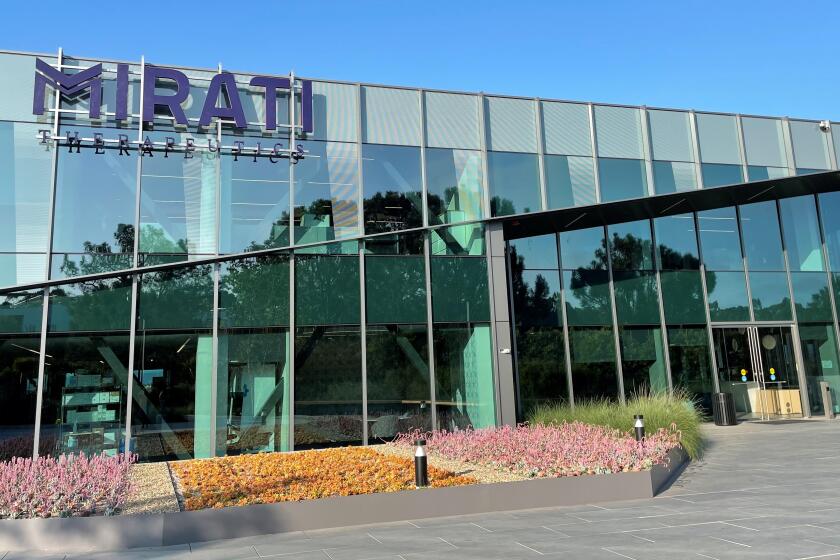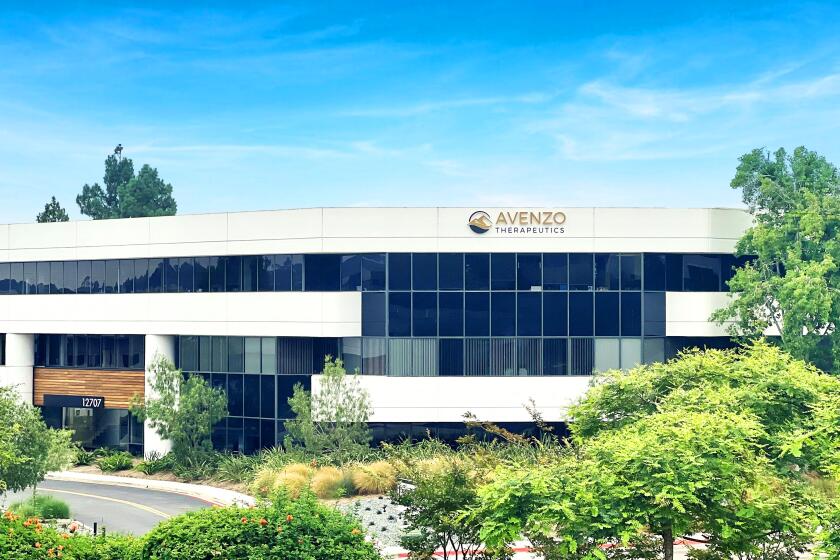Feds raid San Diego vaccine developer NexBio
How clinical trials work
Phase 1: An experimental drug is tested in a small group of patients (from 10 to 80) for the first time to evaluate its safety and identify side effects.Reformulations of existing government-approved drugs typically undergo only a Phase 1 trial to show that they perform in the same way as the original therapies.
Average cost per patient: $15,700
Phase 2: A larger group of patients (from 100 to 300) receives the drug to further evaluate its safety and to determine if it works as expected, while a second group receives a placebo for comparison.
Average cost per patient: $19,300
Phase 3: The drug is tested in a much larger group of patients (from 1,000 to 3,000) to confirm effectiveness, monitor side effects and compare it with existing therapies. Positive results typically lead to a regulatory review of the drug (conducted by the Food and Drug Administration in the United States).
Average cost per patient: $26,000
Phase 4: After the drug has been approved by regulators and goes on sale, researchers track patients taking the therapy for several years in order to look for unexpected side effects. They also collect additional data on the drug’s benefits and optimal use.
Sources: National Institutes of Health and Cutting Edge Information
FBI and other federal agents took over the office of a San Diego flu vaccine developer Thursday morning to serve search warrants tied to a white-collar criminal investigation, authorities said.
FBI spokesman Darrell Foxworth would not say what type of crime was being investigated at NexBio, which is located on Sorrento Valley Road. No arrests have been made, he said.
The privately owned company has spent years working on Fludase, a powdered inhaler treatment designed to block a receptor that all flu virus strains use to enter cells in the airways.
Since its founding in 2003, NexBio has received at least $73 million in grants and contracts from the National Institutes of Health to develop and test Fludase, according to agency records and a 2009 report from the San Diego industry group Biocom.
After operating solely with government funding, the company in recent years tried to raise money from investors. It isn’t clear whether those efforts were successful.
Company officials did not respond to several telephone and email messages.
NexBio has completed a pair of phase 1 clinical trials that tested the safety and tolerability of Fludase on small groups of people. Two other phase 1 trials are underway, and a phase 2 study in 264 patients with flu-like symptoms was launched in December 2009.
The NIH has provided funding for pre-clinical, phase 1 and phase 2 studies.
On Thursday, more than 20 agents with the FBI and the Department of Health and Human Services’ Office of the Inspector General arrived at NexBio at 8 a.m., Foxworth said.
The Inspector General’s office is the law enforcement arm of Health and Human Services, which oversees the NIH.
About 20 cardboard boxes, folded closed and stacked neatly against the front lobby desk, were visible through the glass front doors later in the morning. A dozen empty boxes sat on the other side of the lobby as agents went in and out.
“We’re out there to seize records in support of bringing charges against responsible parties,” Foxworth said. “I would remind the public that a search warrant is not proof of guilt.”
Vincent Gordon, owner of Procuro, a software company in a neighboring building, said that after the agents arrived they escorted as many as 40 employees out of the NexBio building to a parking lot. Employees were allowed back into the building about 40 minutes later, for a short time, and then they left the offices, Gordon said.
He said agents said little about what they were doing.
“Every one of them was armed and they had flak jackets,” Gordon said. “I said, ‘Anything I should be concerned about?’ and (an agent) said ‘No, not at all.’ ”
Agents didn’t let visitors into the building.
Gordon said NexBio moved into the office complex about a year ago.
The company’s novel drug technology attracted the attention of the technology magazine Scientific American, which placed NexBio on its annual list of the 50 most influential scientists or companies in 2005.
Around the same time, however, NexBio’s top two executives - Chief Executive Officer Mang Yu and research development president Dr. Fang Fang - were hit with a federal lawsuit brought by their former company, Perlan Therapeutics.
The litigation alleged that Fang absconded with the idea for the flu medication from her former employer.
Yu and Fang, who are married, started Perlan in 1997 in San Diego under the name CFY Biomedicals. Yu resigned from the company in 2001 after it raised money from venture capitalists and changed its name.
Fang remained with Perlan until May 2003 then joined NexBio.
A U.S. judge dismissed the suit in August 2006, saying the federal legal claims were weak and more substantive claims belonged in state court.
Get U-T Business in your inbox on Mondays
Get ready for your week with the week’s top business stories from San Diego and California, in your inbox Monday mornings.
You may occasionally receive promotional content from the San Diego Union-Tribune.

